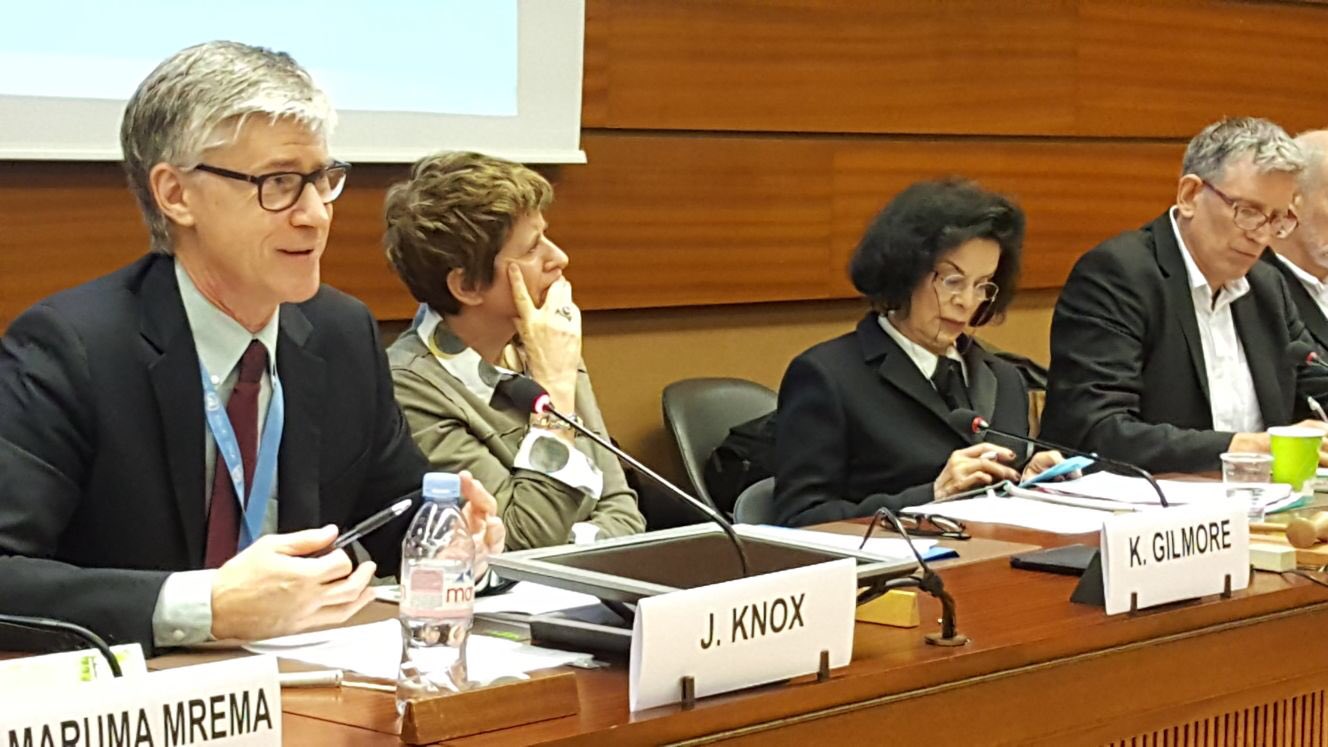First published on 03/06/2018, and last updated on 05/22/2018
Environmental rights are enshrined in over 140 national constitutions yet four people per week are killed defending those rights, and many more are harassed, intimidated and forced from their lands. Around 40-50% of the 197 environmental defenders killed in 2017 were from indigenous peoples and local communities.
Violations of environmental rights are on the rise worldwide, fueled by corruption, greater competition for natural resources, weak enforcement, and the irresponsible exploitation of land and other natural goods. The links between human rights and the environment are rapidly gaining recognition at the international level. The work of Professor John Knox, UN Special Rapporteur on Human Rights and the Environment, has significantly helped move the profile of these issues from the periphery to the centre of the UN’s agenda.
On 6 March 2018, during the 37th Session of the Human Rights Council in Geneva, Holly Jonas (International Policy Coordinator of the ICCA Consortium) attended the launch of the new Environmental Rights Initiative of the UN Environment Programme (UN Environment). This Initiative represents the next phase of UN Environment’s work on human rights and the environment and will build on the outcomes of its past projects as well as key UN Environment Assembly and Human Rights Council resolutions. The Environmental Rights Initiative will bring environmental protection nearer to the people by helping them to better understand their rights and how to defend them; by working with media to improve coverage of rights issues; by calling on the private sector to move beyond a culture of compliance to one where environmental rights are championed; and by assisting governments to implement environmental rights obligations.
“Those who struggle to protect planet and people should be celebrated as heroes, but the sad fact is that many are paying a heavy price with their safety and sometimes their lives,” Erik Solheim, Executive Director of UN Environment, said of the launch of the UN Environmental Rights Initiative. “It’s our duty to stand on the side of those who are on the right side of history. It means standing for the most fundamental and universal of human rights.”
According to Professor John Knox, UN Special Rapporteur on Human Rights and the Environment, “The time has come to recognize this formal interdependence of human rights and the environment, not only at national level but at the UN level too.” He also spoke passionately about the need to defend environmental defenders, saying: “If we can’t protect them, everything else we’re doing to protect the environment will be ineffective.”
Kate Gilmore, UN Deputy High Commissioner for Human Rights, echoed these views: “We know what to do: defend the environment and defend those who defend it.”
In addition to Prof. Knox and Ms. Gilmore, the launch event in Geneva also featured the following esteemed speakers:
- Elizabeth Maruma Mrema, Director of the Law Division of UN Environment, who underscored her agency’s longstanding work on environmental rights;
- Bianca Jagger, President and Chief Executive of the Bianca Jagger Human Rights Foundation, who called for an end to the culture of impunity of the assassination of environmental defenders and indigenous peoples and local communities;
- Patrick Alley, Director and Co-founder of Global Witness, who spoke about the crucial importance of tackling corruption and developing a wide coalition to address these issues; and
- Jonathan Watts, Global Environment Editor of The Guardian, who highlighted the difficulties of gathering information about threats to and killings of environmental defenders.
For more information, please visit UN Environment’s webpage on “Advancing Environmental Rights”, read the fact sheet and view the 3-minute video (above) on the Environmental Rights Initiative, and read a 9 March article on The Guardian.
